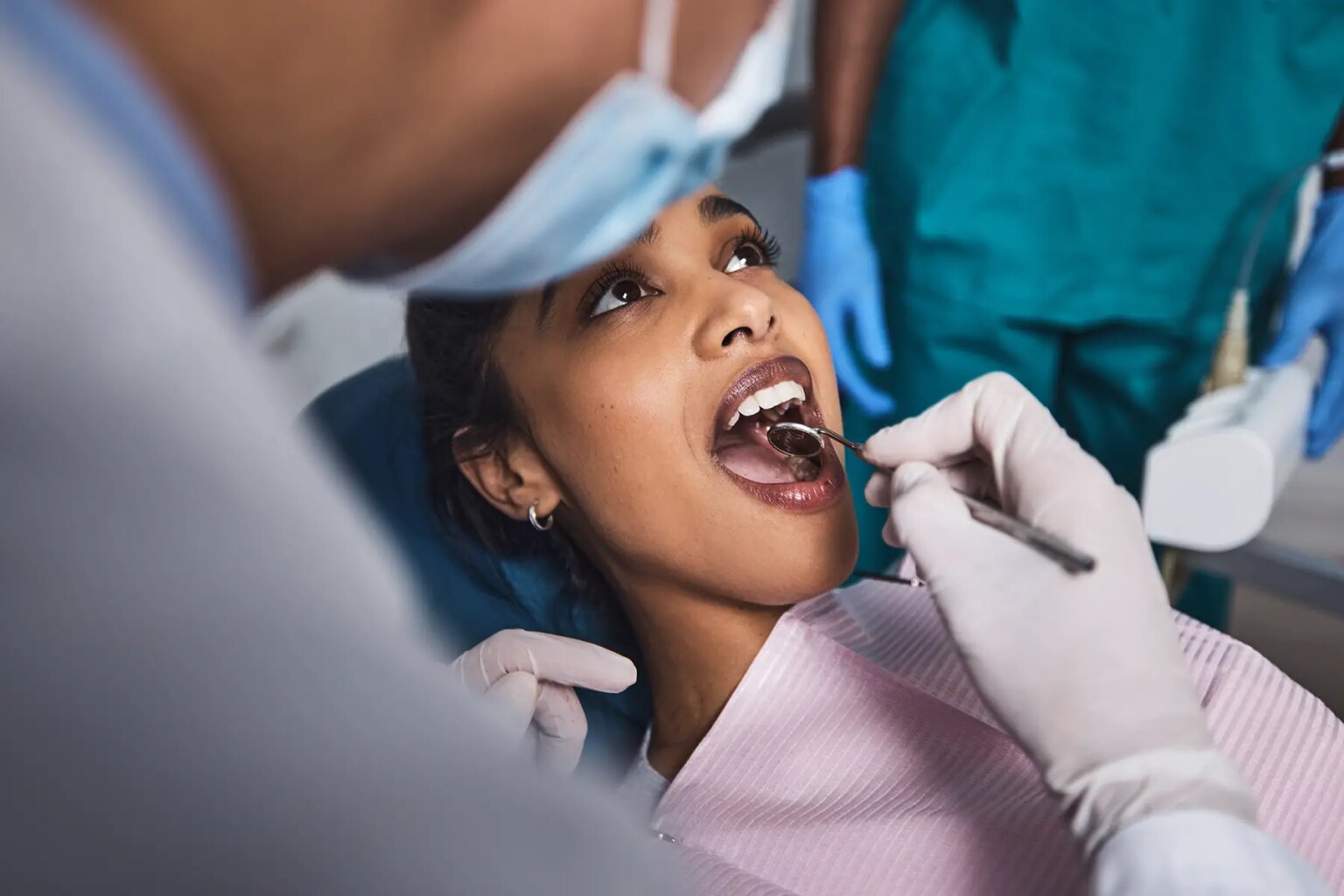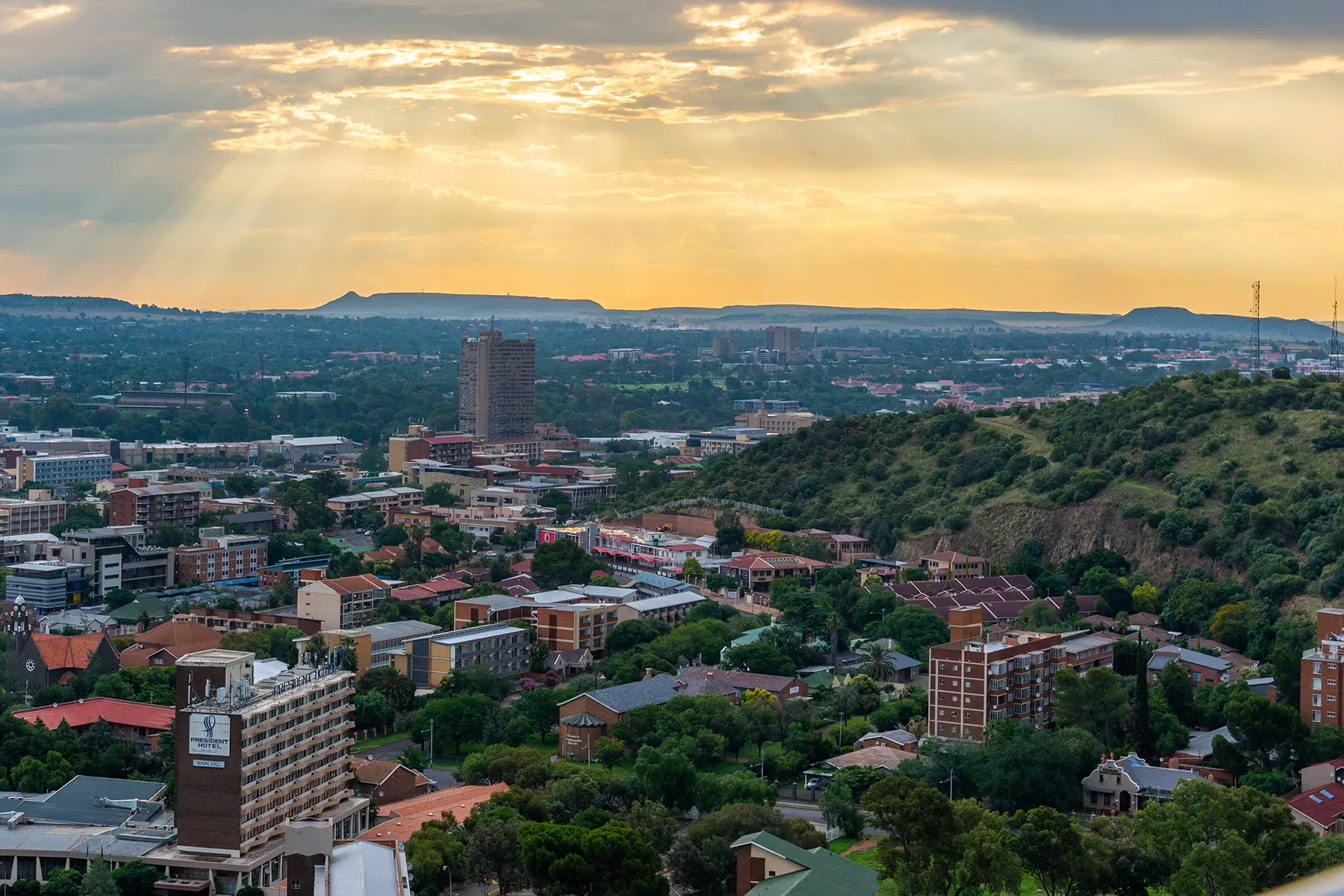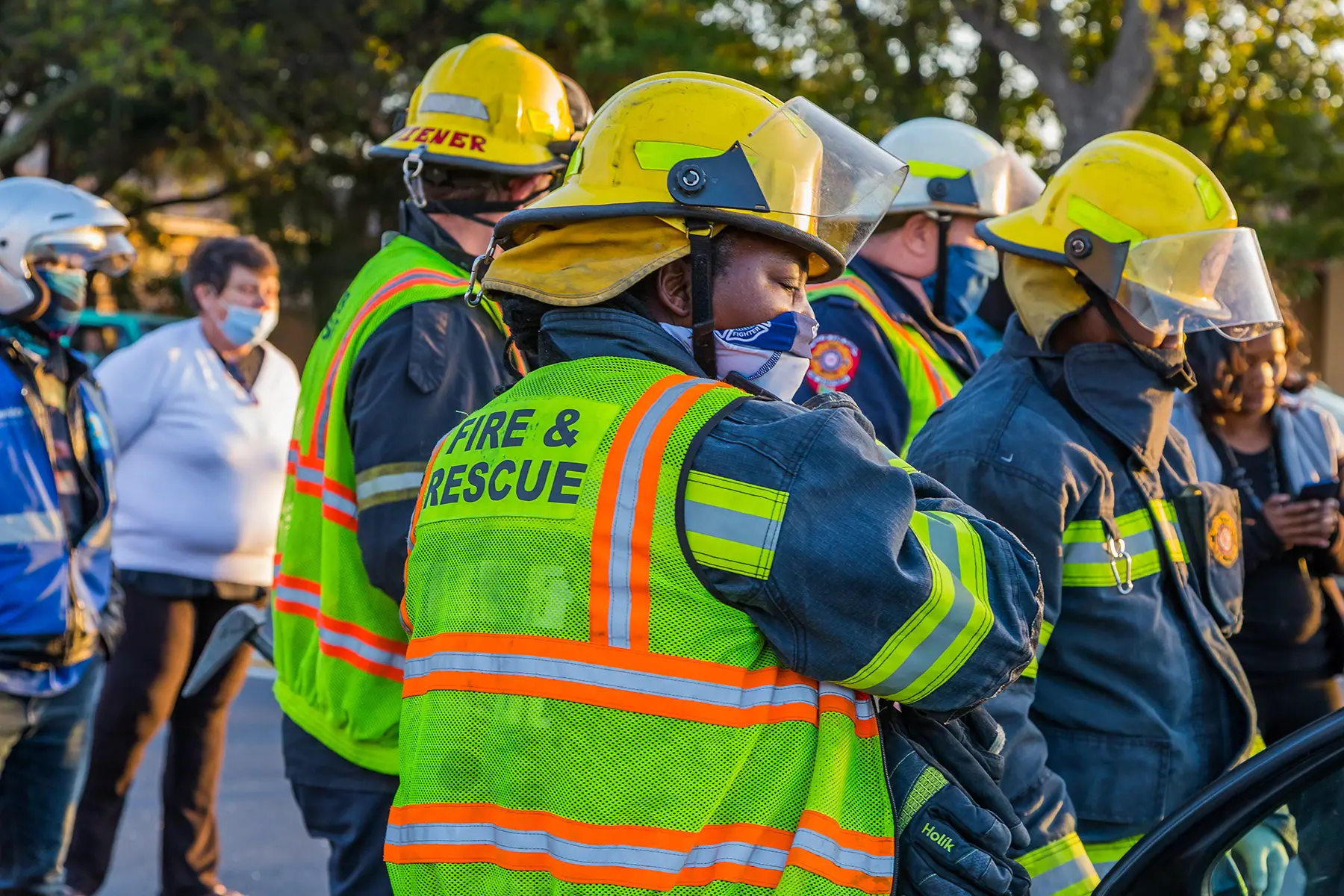South Africa is a popular holiday destination with its beautiful coastline, intriguing wildlife, friendly people, and sunny weather. So popular, in fact, that many internationals make it their permanent home.
While living in South Africa might be financially beneficial, there is much to organize before settling in. For instance, you need to apply for a visa, find a new home, set up bank accounts, and register your children in school. Of course, you cannot forget about healthcare. Can you access public healthcare, or do you need private health insurance? Next, you must become familiar with the hospital system and find a doctor and a dentist.
This article will make things a little bit easier by explaining everything you need to know about dental care in the country, covering the following topics:
- The healthcare system in South Africa
- Dental care in South Africa
- State dental care in South Africa
- Private dental care in South Africa
- Dental insurance
- Accessing dental care in South Africa
- Finding a dentist in South Africa
- What happens at a dental appointment?
- The cost of dental care in South Africa
- Children’s dental care in South Africa
- Emergency dental care in South Africa
- Useful resources
Cigna Global
Want access to the best private medical services in South Africa? Speak to the healthcare professionals at Cigna Global today and find a policy that’s right for you. Take advantage of their global network of doctors, specialists, therapists and more with coverage tailor-made for you and your family. If you’re starting a new life in South Africa, get peace of mind with Cigna Global.
The healthcare system in South Africa
South Africa has a two-tier healthcare system that operates in tandem: public and private. Everyone in the country can access the state healthcare system. They simply need to register with the appropriate practitioner. However, the state-subsidized public sector is not nearly as well funded as the small private sector, financed by health insurance contributions.
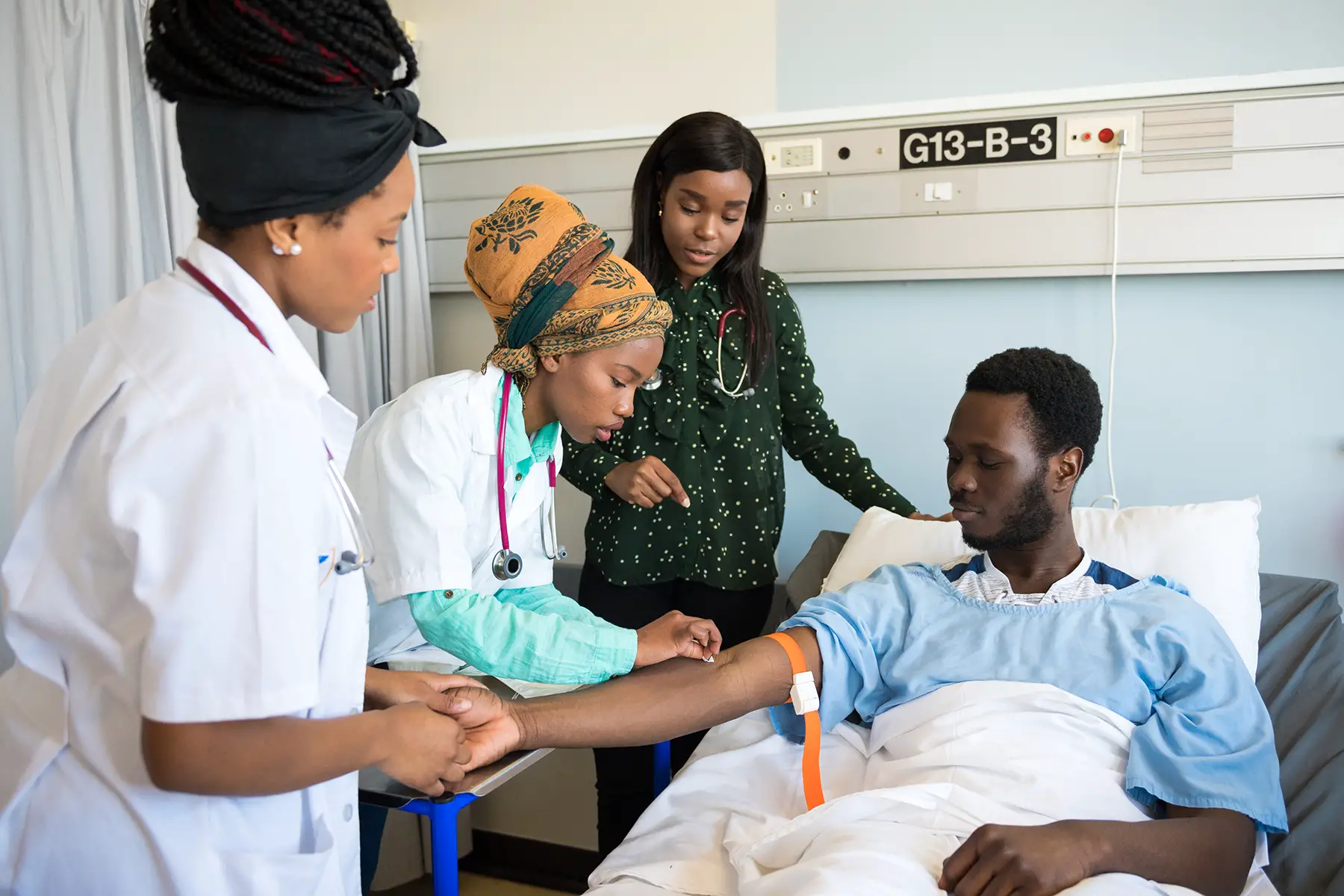
Unfortunately, this leads to inequality in access to healthcare, as 71.5% of the population relies on the overstretched public health system plagued by a lack of resources and inefficiency. In contrast, only a minority, including many international residents, can afford health insurance to access private healthcare with higher quality services and more resources available.
South Africa’s public and private health sectors include dentistry. Two organizations, the Dental Therapy Association of South Africa (SADTA) and the South African Dental Association (SADA), oversee the industry to ensure high medical standards. However, the public system only covers routine dentist checkups and procedures.
Dental care in South Africa
Although the standard of dental care in South Africa is generally good, there is a significant shortage of dentists in the country, especially within the public health sector. In 2021, only 6,586 dentists and 526 oral specialists registered with the Health Professions Council of South Africa (HPCSA).
For a population of 59.4 million, this is only one dentist per 9,200 patients. This number is above the ideal patient-population ratio of one dentist per 7,500 people as proposed by the World Health Organization (WHO).
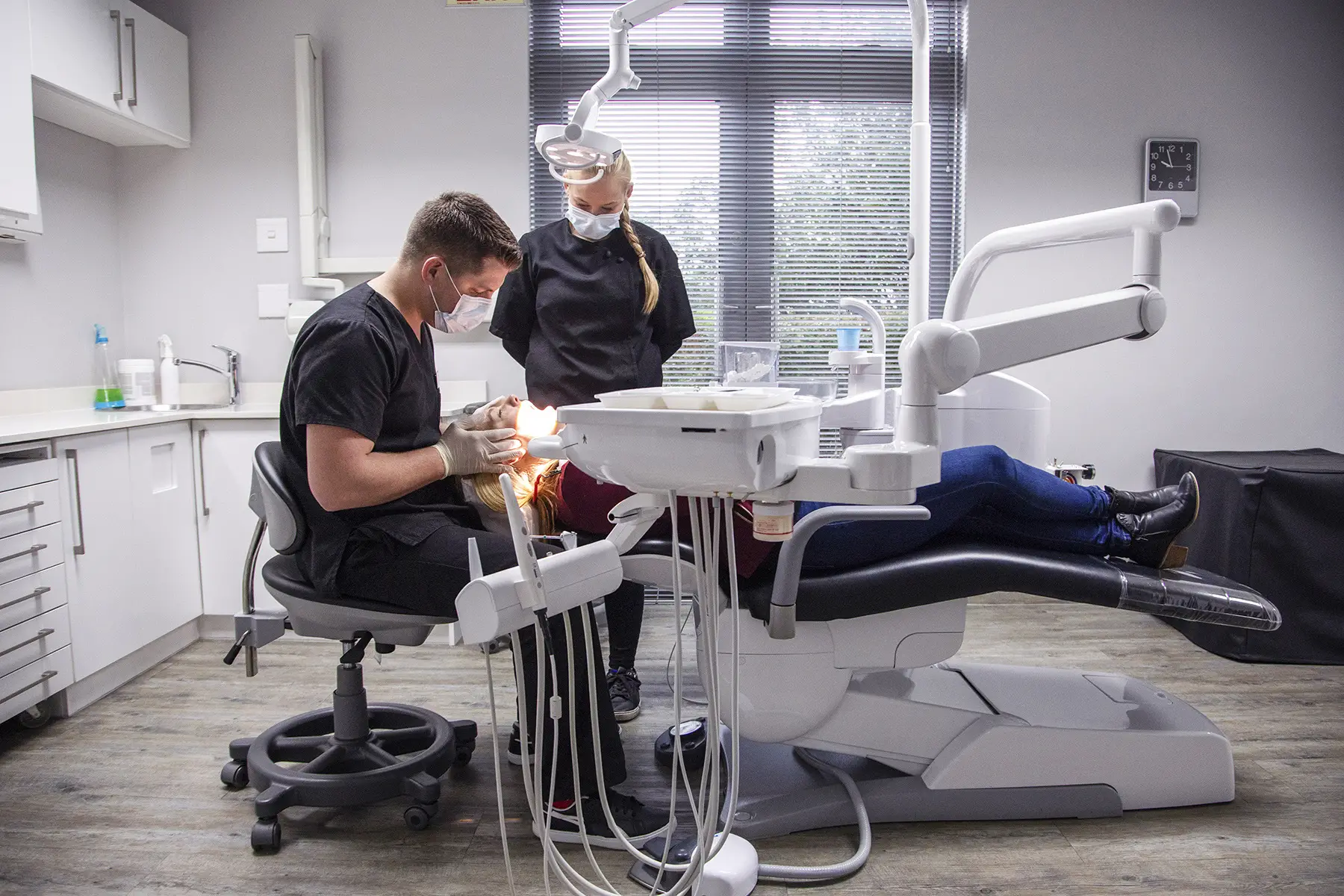
Typically, the private healthcare system offers more extensive services of a higher quality. Dental tourism is popular in South Africa, especially in Cape Town, due to the high standards of dental care, superior technology, and far lower cost of care compared to Europe and the United States (US).
State dental care in South Africa
Oral healthcare is part of South Africa’s public primary healthcare package. As with the rest of the country’s medical services, anyone can register and use South Africa’s state dental services. The government subsidizes dental care, so residents only have to make small co-payments. However, these only apply to essential treatments and dentures. As such, residents still have to pay for complicated dental procedures.
Unfortunately, because of the critical shortage of dentists and funding, state dental care in South Africa is lacking. As a result, there are currently no public oral health programs, and residents are mostly left to their own devices when seeking treatment.
Private dental care in South Africa
Because the quality of care is much higher, most internationals access oral care in the private sector. Patients can also access a broader range of oral care services, including teeth whitening, veneers, implants, and alignments.
Generally, there are six types of dental specialists in South Africa: community dentists, oral surgeons, pathologists, orthodontists, periodontists, and prosthodontists.
Of course, the cost is much higher than public dentistry and the state does not subsidize any part of it. Therefore, patients must cover the total cost of treatment themselves. As a result, many expats purchase dental insurance to cover their dental expenses. Usually, the patient settles the bill at the end of their appointment and claims reimbursement from their health insurance company.
Dental insurance
Although South Africa’s public health system covers primary dental care, you will need separate insurance for the private system. However, as not all health insurers in South Africa include dentistry in their plans, you may need to add dental care to your policy or buy supplementary dental insurance.
Still, many reputable providers offer dental coverage in their medical insurance policies, such as:
Typically, private insurance covers one yearly dentist visit and treatments like fillings and x-rays. Of course, more comprehensive policies will cover multiple visits and complex procedures. Be aware that you may need your insurer to authorize treatments ahead of time in some cases. For example, if you need crowns, implants, or braces, you should consult your insurer before continuing with the procedure.
The cost of dental insurance in South Africa will depend on what level of coverage you choose. For example, Affinity Dental’s Silver Plan is R279 per month. It covers primary dental care, but the company’s Platinum Plan offers full benefits from R579 per month.
Accessing dental care in South Africa
Technically, all residents can visit public dentists in South Africa. You need to register with the practice and provide identification and personal information. But, be aware that you may need to make a co-payment at the end of your visit, especially if your treatment goes beyond primary care.
Finding a dentist in South Africa
It is easy to find a dentist in South Africa, and it is a good idea to choose a good dental office near your home or work. You could also ask friends or colleagues for recommendations. Furthermore, there are many online search and comparison sites where you can find listings and reviews for dentists, such as:
However, if you have dental insurance, your may need to choose from their list of associated practitioners.
Finding an English-speaking dentist in South Africa
You will have no problem finding an English-speaking dentist as everyone can speak the language, being one of South Africa’s 11 official languages. Most, if not all practitioners, would also have done their training in English.
What happens at a dental appointment?
Making an appointment with a dentist in South Africa is relatively easy. You can call the dental clinic or book an appointment online. However, within the public health system, you might have to wait several weeks or months before seeing a dentist. It is far quicker to see a private dentist. Sometimes, you may need a dental care referral from your GP to access subsidized government services.

You must register at the reception desk when you arrive for your appointment. If you are visiting a private dentist and have insurance, you may also need to show your insurance card. The length of your visit will depend on exactly what treatment you need. For example, a routine checkup and cleaning should be around half an hour. For more extensive treatments, though, such as fillings and root canals, you can expect to be in the dentist’s chair much longer.
At the end of the visit, you will have to return to the reception desk to settle your bill. In the public system, you may need to cover the co-pay or cost of more extensive procedures. In a private clinic, you will most likely pay the whole bill and claim it from your insurer.
The cost of dental care in South Africa
As in all countries, the cost of visiting a dentist in South Africa can vary greatly. In the public sector, primary dental care is usually free. Still, residents may have to cover more extensive treatments. The exact costs will depend on what treatments you receive.
Dentists in the private sector can set their rates, which can also differ. Below are examples of costs of private dental care in South Africa:
- Basic checkup: R300–R500
- Whitening: up to R5,500
- Root canals: from R900
- Deep cleaning, including scaling and root planning: R10,000–R16,000 per visit
- Dental restorations: R500–R6,500
- X-rays: from R350
- Crowns: from R3,000
- Tooth extraction: from R350
- Dental implants: R20,000–R200,000
Low-cost dental care in South Africa
Most private and public dentists in South Africa offer concessions for pensioners. In addition, dental students must offer some out-of-hour services (under supervision) while they are training, which can be a good way to access low-cost dental care.
Children’s dental care in South Africa
In South Africa, children can access dental care through the public health system. For the most part, basic dental care for children is a free service. However, you may need to pay for complicated treatments.
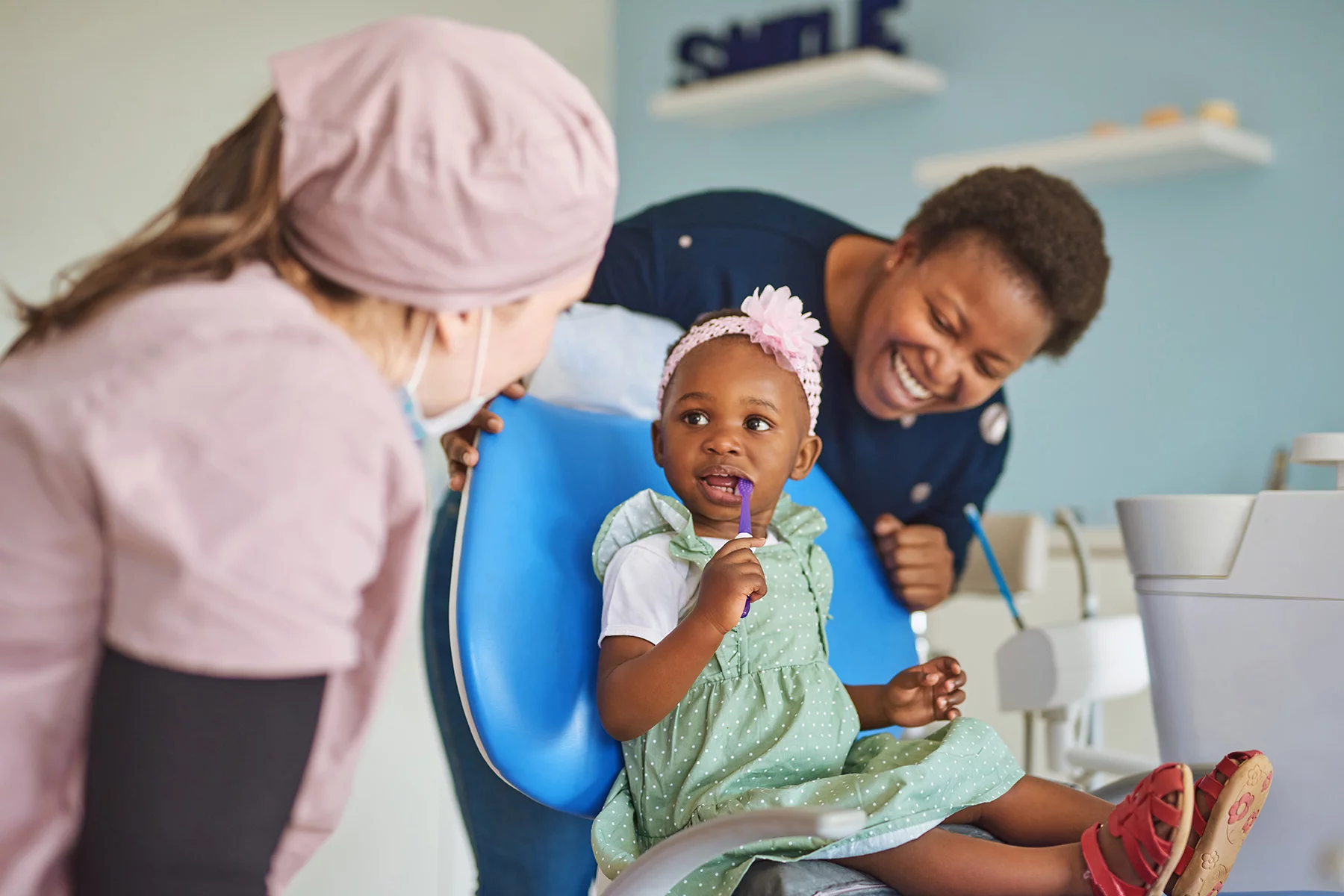
Most regions within South Africa offer primary dental care within the school health program. These initiatives teach children about oral hygiene and proper dental care. School dentists often do routine dental checkups, and parents can consent to essential treatments, such as fillings. If the child needs extensive procedures, the school dentist will send a referral letter to the parents to access the required dental care.
Emergency dental care in South Africa
Your first point of contact in a dental emergency should be your dentist. Even out of regular working hours, your dentist’s voicemail may direct you on how to seek treatment for emergencies. If your dentist is unavailable, you can find a practitioner with the South African Dental Association (SADA) online search tool.
If you cannot find an open dental clinic, you can try to visit the emergency room at your local hospital. Although they will likely not be able to deal with dental issues, they can offer short-term solutions and pain relief until you can get to a dentist.
Useful resources
- What Clinic – comparative website to find a dentist
- Health Professions Council of South Africa (HPCSA) – registration/regulating body for health professionals in South Africa
- The South African Dental Association (SADA) – a regulating body/association for dentists in South Africa
- South African Dental Therapy Association (SADTA) – a governing body/association for dental care professionals in South Africa
